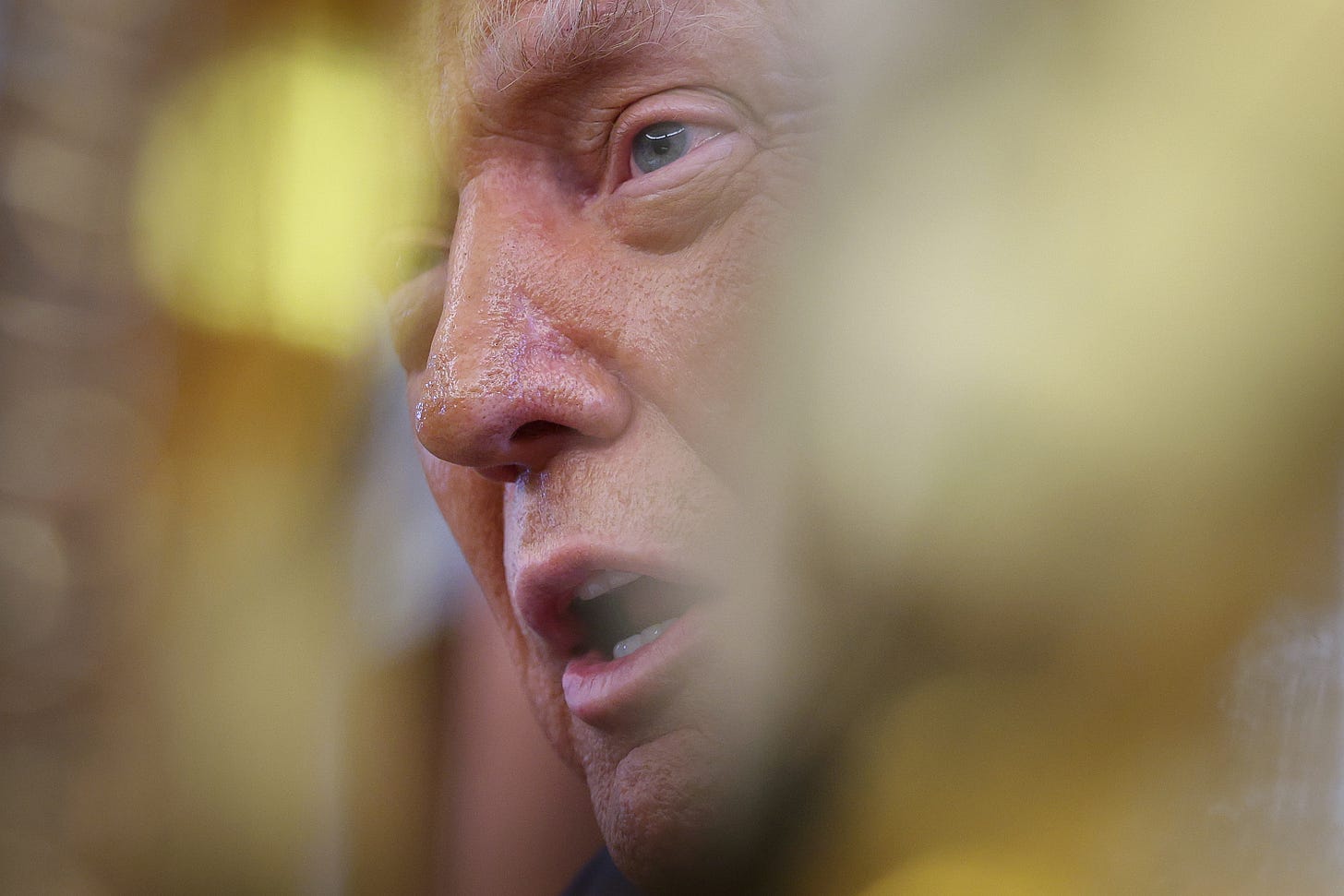Appetite for Destruction
The second Trump administration is primarily animated by an anti-conservative impulse to demolish the institutions and customs of liberal-democratic self-government

Nearly three months into the second Trump administration, a few things have become clear.
For one thing, the president aims to push executive power to its absolute limit, with Congress responding passively to the power-grabs and the judiciary standing alone in attempting to prevent the thoroughgoing breakdown of the separation of powers and its replacement by unitary, dictatorial rule by Donald Trump.
For another, Trump himself has established an unprecedented level of personal control over policy. Unlike most previous presidents, he isn’t just setting broad goals (“make our trade policy more protectionist”) and letting expert advisers figure out the details and present him with several reasonable options from which to choose. Rather, Trump is receiving advice and then making his own judgment calls, often opting for much riskier courses of action and haphazard shifts of direction.
This is clearest when it comes to international trade. Tariffs are imposed, then suspended; tariff rates are set much higher than the president’s staff advised, then dropped when bond-market gyrations provoke fear of a Trump-branded financial crisis; then a long list of exceptions to the tariffs is announced; and so forth. The result is a level of impulsiveness and resulting uncertainty beyond anything previously considered normal.
We see something slightly less egregious, though perhaps equally improvisational, when it comes to immigration policy, where Trump appears to be listening to his most nativist advisers (above all, Stephen Miller) in looking for ways to disregard laws and rules that stymie efforts to deport undocumented immigrants at will and without due process.
But stepping back a bit from the relentless and anarchic daily news cycle to take in the whole of what’s transpired since January 20, something else becomes apparent: The administration is governing in an overwhelmingly negative way. The president and his team are out to destroy, like demolition experts sent into a high-rise housing project to level the buildings, leaving a vast vacant lot.
That’s not what one would expect from a conservative administration. But it is exactly what one gets with a reactionary (or counter-revolutionary) regime that thinks the order of the present has little if anything worth conserving. That has long been what separates conservative from reactionary impulses. The former seeks to slow down or even halt changes out of love for an inheritance from the past and a fear of unintended consequences that threaten to destroy fragile institutions and customs that have been handed down to us. The latter, by contrast, looks around at the present with disgust and seeks to reduce it to rubble in the hope that a vaguely discerned new beginning might emerge, mysteriously, from the wreckage.
The evidence is overwhelming that the second Trump administration is governing like its leading figures are animated by precisely such an appetite for destruction.
Keep reading with a 7-day free trial
Subscribe to Notes from the Middleground to keep reading this post and get 7 days of free access to the full post archives.




